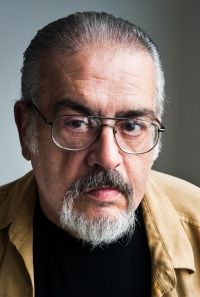“I fought with weapons in my hand, with a computer in my hand, and before that with just a pencil in my hand.”

Download image
Enrique Encinosa was born on 29 April 1949 in Havana. Enrique’s carefree childhood ended with the Cuban Revolution in 1959 when Fidel Castro deposed the government of Fulgencia Batista. Due to political instability in the country and increasing violence against the opposition of the new communist regime, his parents decided to emigrate to the United States. Enrique joined several organizations in the US focused on the armed struggle against the regime in Cuba, such as “Alpha 66” or the “Abdala” movement. In 1971, members of Abdala occupied the United Nations headquarters as a symbol of protest against the lack of response concerning the question of Cuban prisoners. Between 1976 and 1978, Enrique served as a double agent for the CIA and Fidel Castro’s secret services. In the 1980s, he began collecting materials for his literary work and began writing reports and short novels. He knew from the age of 13 that he wanted to be a writer and devote his work to the Cuban issue. He interviewed over 200 former political prisoners and exiles from Cuba. He also founded the PEN Club of Cuban Exile Writers. In addition to his anti-regime activities, he is intensively devoted to boxing. He lives in Miami and has two sons.
